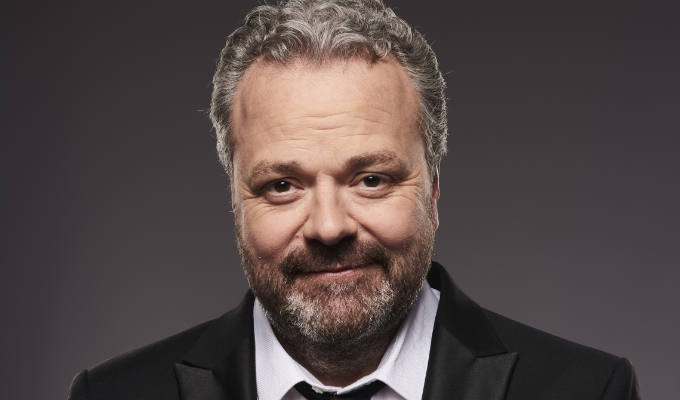Deadly Funny 2008
Note: This review is from 2008
Review by Steve Bennett
Any fears that the indigenous Australian comedians taking part in the Deadly Funny competition might be too culturally distant for a white Englishman like me to understand don’t last long.The minute host Sean Choolburra comes on to a pounding disco beat, dancing like Michael Jackson, spinning, dipping, and going ‘woo’ a lot, you know we’re in the cheesy territory of the American Def Comedy Jam franchise. Indeed, when a latecomer is greeted by the jibe: ‘Black people – always late’ the concern over reference points flips over completely. Rather than not being able to relate to what’s being said, will this, in fact, be two hours of tired hack comedy absorbed from Western culture?
Thankfully, neither is true. The 13 finalists, performing to a mixed audience, demonstrate a rich variety of styles, influences and topics. But the bottom line is that, like any good comedians, they mine their personal experiences to give an insight into life from their point of view – then make a joke of it. It works if you’re a neurotic New York Jew, socially stifled middle-class Englishman or an aboriginal Australian and it matters no – at least in the cases of the best comedians – whether your audience shares your background or not.
This is only the second time this competition’s been held, and winner Kevin Kropinyeri was an obvious winner. His strong, animated delivery ensured the audience was in the palm of his hand as he talked about his hairiness and his domestic life. A comic natural, the crowd adored him – and there would have been uproar had he not taken the crown.
But, as is usual for any competition, he wasn’t the only star. My favourite was Darren Parker, a half-Irish, half-indigenous act who had a plethora of sharp culture-clash jokes. He didn’t have the energy of Kropinyeri, and suffered from following him, but he’s an act with lots of promise – even though he didn’t get placed on the night.
Runners-up honours were shared between Shiralee Hood, another crowd favourite who closed the competition with a nice, if not side-splitting, set of gaggy if contrived, philsophies; and Warren Milera, who cut a very engaging presence with his everyday observational material, from buying toilet paper to how to speak Aboriginal English. But he did seem to perform for considerably longer than everybody else.
As for the rest of the line-up:
Cy Fahey seemed inexperienced, and concentrated rather too much on his unusual first name, but proved an engaging presence
Josie Atkinson played up the image of a spoiled glamorpuss, but struggled with actual material. She seemed overawed by the occasion, and her stilted, nervous delivery was marked by long pauses, and lots of hair-tossing to indicate where a punchline should have been.
Pascoe Wilson Braun was unforgettable – but not necessarily for the right reasons. Dressed in yellow silk shirt and dragging a fur coat behind him, he started with jaw-droppingly offensive material about ‘queers and coconuts’. But it got better as his larger-than-life personality, rather than shock-value statements, came to the fore.
Dennis Simmons had a couple of nice lines and some engaging anecdotes, that were enjoyable enough – but was not sufficiently distinctive or hilarious of to make him stand out from the pack.
Allirra Edwards performed in the guise of a WWE wrestler – though the introduction should probably have made that clear, to avoid a confusing few moments at the start. The trash talk of the originals probably doesn’t need embellishment to be funny, but she had a nice line on some of the hype.
Electra McLellan dedicated most of her time to a long-winded anecdote about begging, with a payoff that wasn’t worth the wait, with a weak pun or two en route
Margie Tang performed a dry monologue in character as Auntie Margie, The Elder, and provided an enjoyably personal take on the childhood nostalgia line of comedy, only with tales about rabbit entrails replacing the more normal patter about obsolete sweets or kids TV shows. She’s a very good storyteller, if still needing a few more punchlines.
Cheryl Harrison became bogged down with a political agenda at the expense of the funnies, with suggestions such as retitling the national anthem Advance Australia Not Fair seeming rather forced. She wasn’t helped by a very quiet delivery.
Natasha Walsh, who followed her, also had a hushed performance, bringing little energy to her late slot, and also struggled to find laughs with rather muddled tales of her 78 kitten and Irish/aboriginal background.
So, after two hours, we had been a glance into indigenous culture in modern urban Australia – at least if that’s what the comedians chose to do – and had some decent laughs along the way. As an exercise, Deadly Funny has probably done a lot more to cross-pollinate the two, usually segregated, cultures than many more ‘worthy’ initiatives – and let’s hope it leads to more aboriginal acts becoming integrated into the wider Melbourne comedy festival, not just ghettoised into this one corner of the programme.
Reviewed by: Steve Bennett
Review date: 1 Jan 2008
Reviewed by: Steve Bennett






